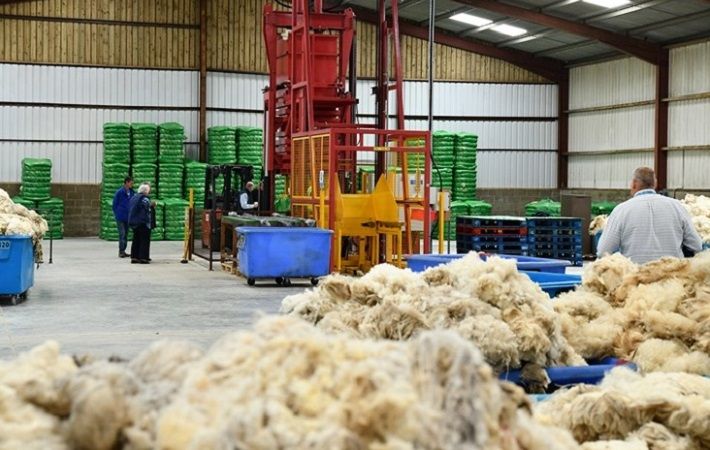
The impact of the COVID-19 pandemic on British Wool has been well documented with the business going through the most challenging 12 months in its history. The closure of large parts of the economy as COVID restrictions took hold severely impacted global demand and resulted in significant over supply through much of 2020, said British Wool in a press release.
When the first COVID lockdown was imposed, the wool scouring plants in the UK closed and manufacturers stopped processing. Exports were also put on hold. British Wool faced a situation where, in effect, there was no market for the product and as a result, closed the 2019 season with 11 million kg of stock unsold.
British Wool moved the auctions online and in January 2021, announced a restructuring of the grading depot network. On an underlying basis the savings equate to a reduction in handling costs of about 7p per kilo which will translate into additional value for producers over the medium to long-term.
As the new shearing season begins, British Wool’s stock overhang from 2019 has been successfully cleared and as the market starts to recover, British Wool will also close the 2020 clip year with a minimal stock position, the release said.
“Despite the challenging year we have had, British Wool is still making a payment to producers for their 2020 clip. The total return averages 15p per kilo. This is still a long way below where we need it to be, but we are optimistic that we will see a further price recovery through the course of the next year. A healthier stock position, reduced cost base and recovering auction prices puts British Wool in much stronger position to deliver better value for our producers in 2021,” said Andrew Hogley, CEO of British Wool.
“Also, following the completion of the restructure, we have enhanced our service offer by opening a number of new collection sites this season. In order to support our service offering we are abolishing onward carriage fees at all of our collection sites from this season. British Wool’s shearing courses are also resuming this year. We see this as an essential part of the support we provide for the industry,” added Hogley.
“In 2020 we handled less wool due to a small number of producers not seeing value in delivering their wool. This in turn had a negative impact on our operating cost per kilo. The more wool we handle the more cost effective our operations become which in turn allows us to return more value to all producers. I’d encourage all producers to support British Wool and for those who have wool from 2020 still on the farm, to deliver this into British Wool this season,” said Jim Robertson, a sheep farmer from Dumfriesshire in Scotland and chairman of British Wool.
British Wool (formerly British Wool Marketing Board), owned by approximately 35,000 sheep farmers in the UK, collects, grades, markets and sells British wool on behalf of the producers to the international wool textile industry.
Fibre2Fashion News Desk (KD)